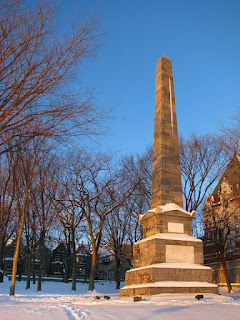"To make and eat the honey of peace": a wartime sermon from Jonathan Boucher
It is no part of my purpose at present to enter into the question how far war is, or is not, lawful to Christians. Merely as a point of casuistry, it might (perhaps) after all my pains, remain with you, (as I confess is the case as to myself) undecided: but neither you nor I can for a moment entertain a doubt, that war is one of the severest calamities with which the Almighty has ever seen fit to chastise the sons of men ... I cannot avoid here remarking, that, wherever war is spoken of by the sacred writers, it is generally conſidered as a curse, on account of the interruption it gives to the labours of the plow ...
Peace is welcome to us on ten thousand accounts: and I do most cordially congratulate you on the joyful occasion of the day. The ordinary occupations of life are now resumed; and your swarms of young men, heretofore so frequently taken from you to go to war, now return to the common hive, to make and to eat the honey of peace. If some have less glory all have more ease : and even those who have only the necessaries of life, now have them without peril ...
War is the just judgement which God inflicts on a sinful people. Had we not deserved it, so grievous a visitation would not have been our lot. But as peace has now once more been restored to us, let us humbly hope that we are become not altogether unworthy of so great a blessing. Let us, now that we are made whole, endeavour to sin no more, lest a worse thing come unto us. Let us again turn our attention to cultivate the arts of peace, the only arts which, as Christians, we ought to be very solicitous to know; and so let us regulate our words and actions, so let us conduct ourselves towards God and our neighbours, that we may lead quiet and peaceable lives in all godliness and honesty.
From Boucher's sermon 'On the Peace of 1763' in A View of the Causes and Consequences of the American Revolution. The picture is of the Wolfe-Montcalm memorial in Quebec City, commemorating the opposing British and French generals killed in the Battle of the Plains of Abraham, 1759.




Comments
Post a Comment